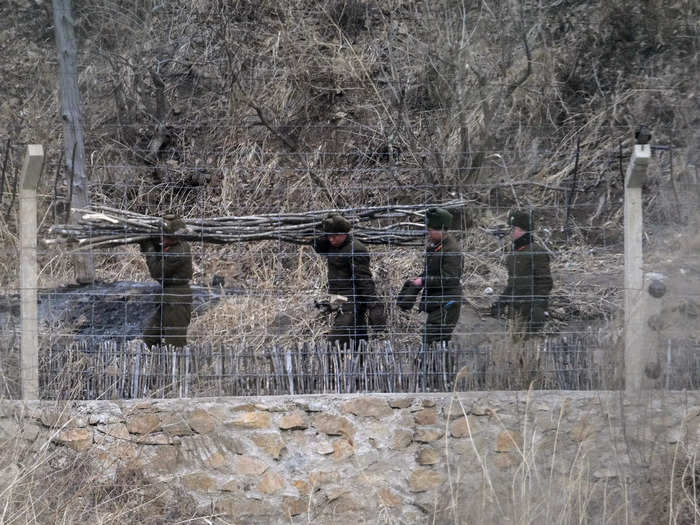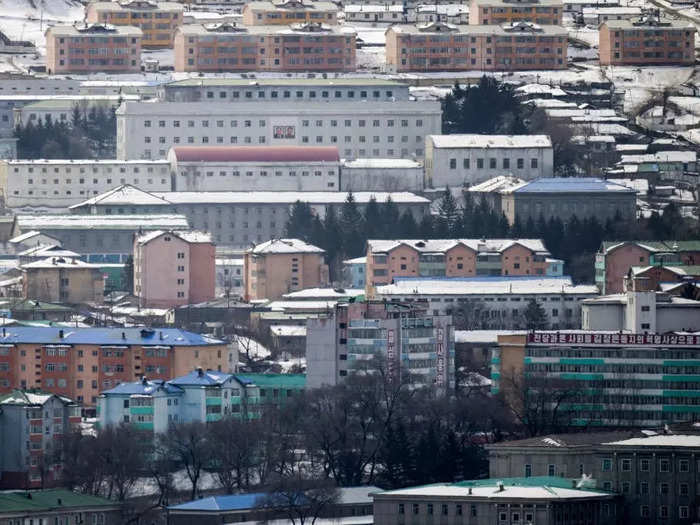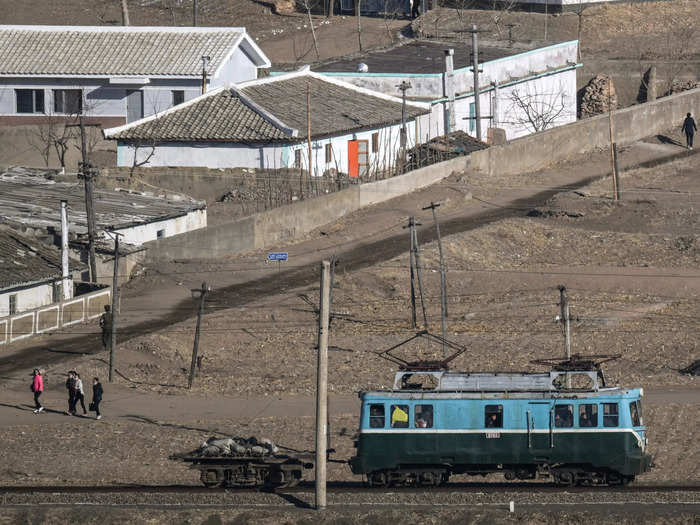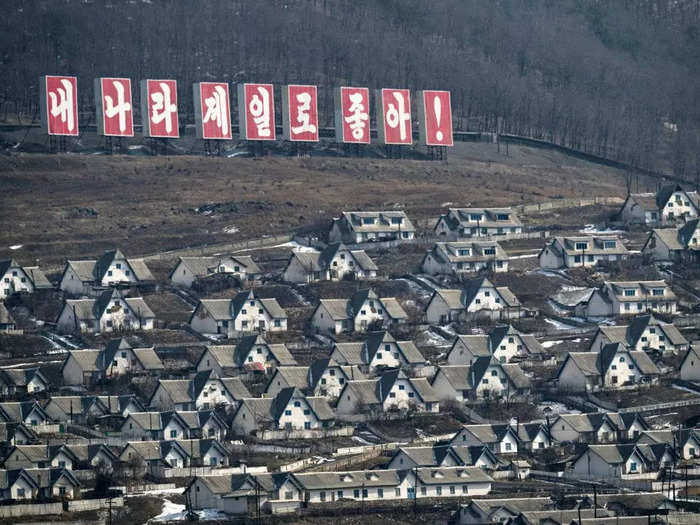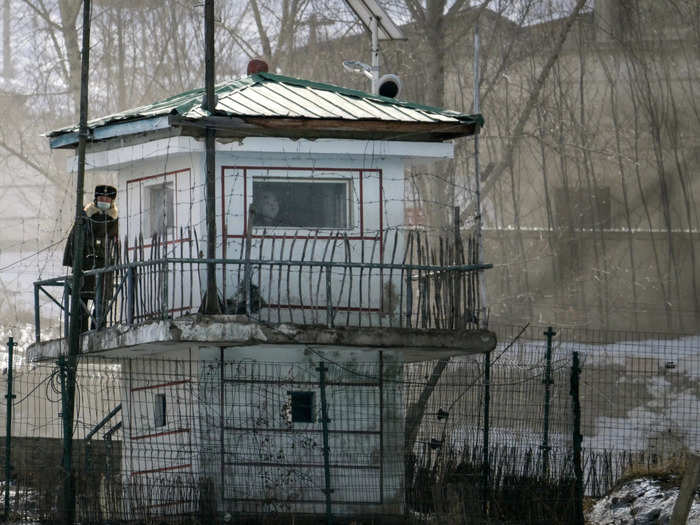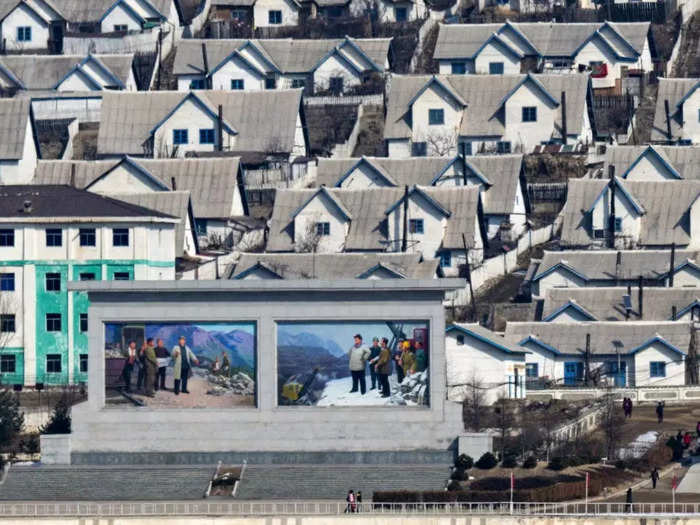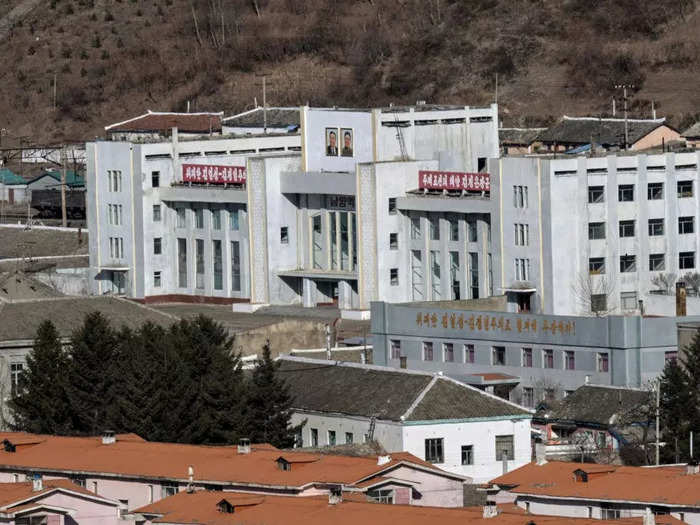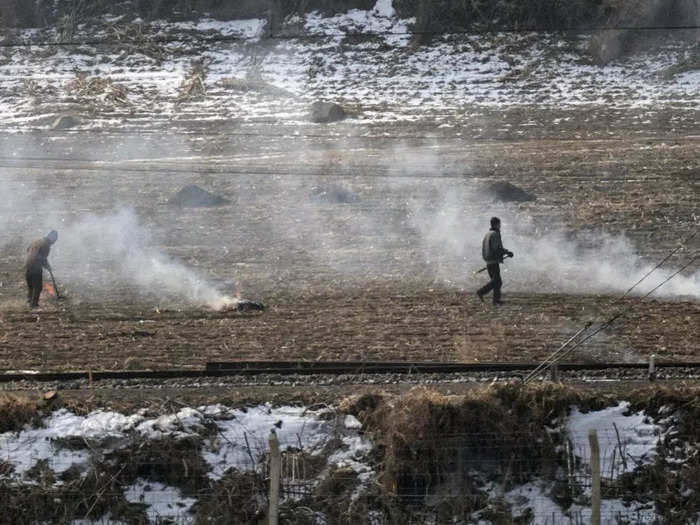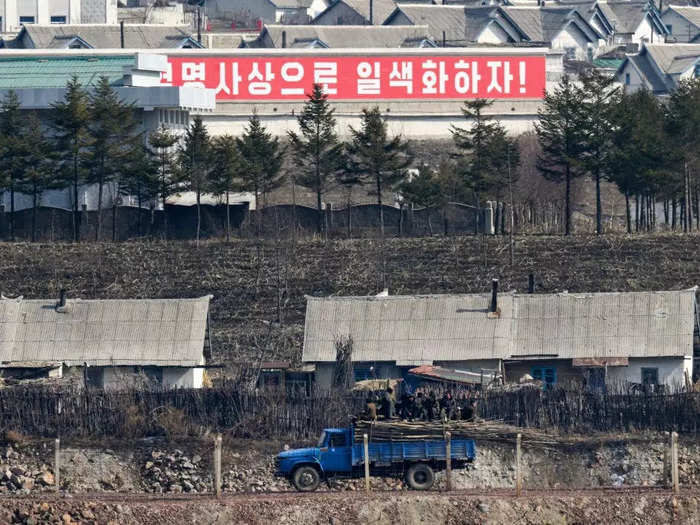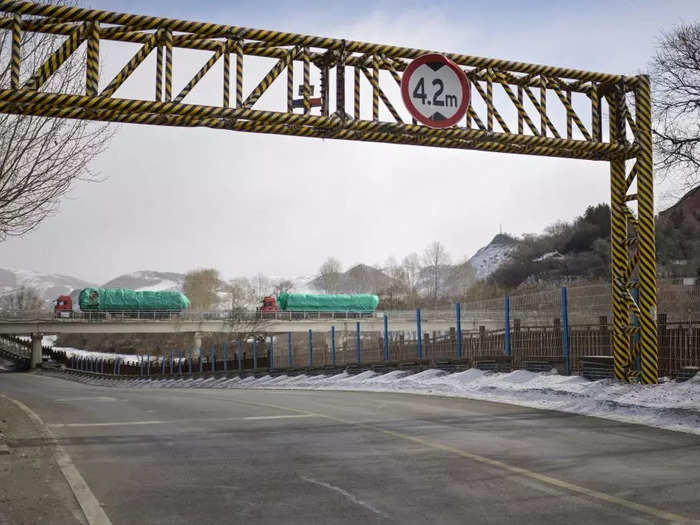Bleak images show snapshots of daily life in the closed world of North Korea
Nathan Rennolds
- An AFP photographer captured rare shots showing everyday life in North Korea.
- Pedro Pardo accessed a remote part of the border in China's Jilin province to get the photos.
An AFP photographer captured rare images showing daily life in North Korea.
To get the photos, Pedro Pardo accessed a remote part of North Korea's border with China in the latter's Jilin province.
The images Pardo took between February 26 and March 1 offer a bleak yet fascinating look at life in a country shrouded in secrecy.
North Korea was founded in 1948 under Kim Il-sung as the Democratic People's Republic of Korea (DPRK), inspired by strict Marxist-Leninist principles.
Its population of roughly 26 million people lives largely in isolation from the rest of the world in the austere communist state, barred from going abroad without permission from the government and subjected to state-run media that blare propaganda praising the nation and its supreme leader, Kim Jong Un.
North Korea's self-imposed isolation is largely due to its guiding principle of "juche," or "self-reliance" — the idea that it should be able to function completely independently and remain separate from the rest of the world.
In practice, this has achieved little other than to stifle the country's economy and trade, and many of its citizens face high poverty levels and severe food shortages. The CIA says North Korea "remains one of the World's most isolated and one of Asia's poorest."
Since the 1950s, it is estimated that around 31,000 North Koreans have sought to escape and defected to South Korea, The Guardian reported in January.
That number surged last year amid what the unification ministry in Seoul called "worsening conditions in North Korea."
Pardo's photos present a unique look into those conditions and life in one of the world's last communist states.
Popular Right Now
Popular Keywords
Advertisement

